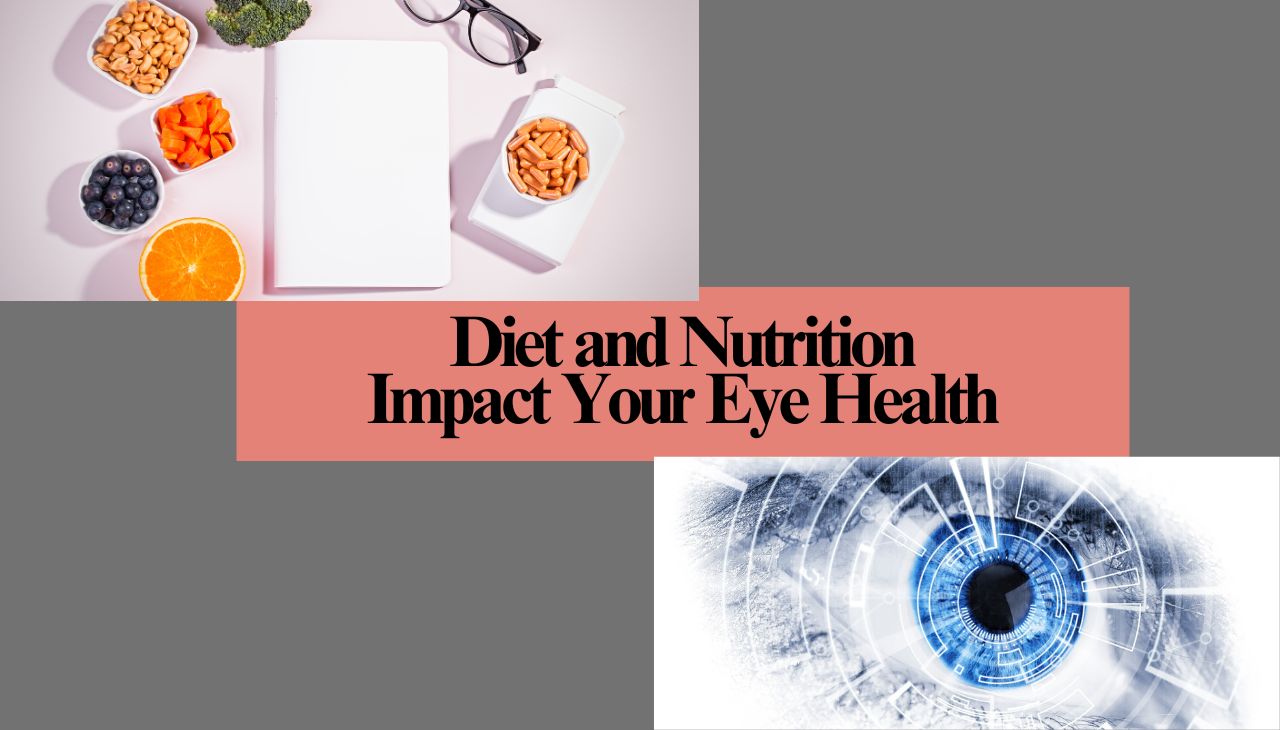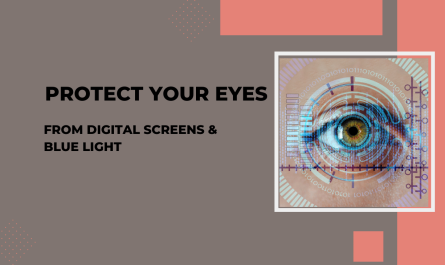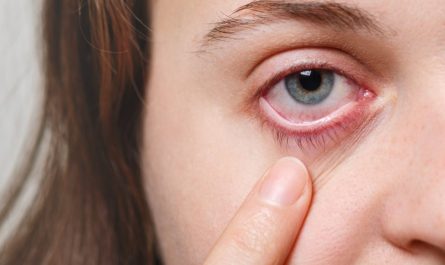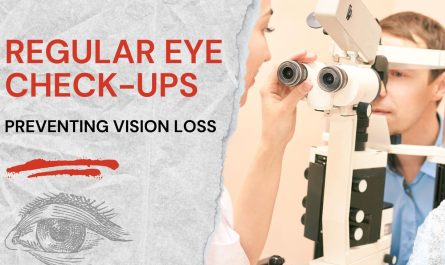Introduction
Our eyes are one of the most vital organs in the human body, allowing us to experience the world in all its beauty. However, just like any other part of our body, our eyes require proper care and nourishment to function optimally. While many people rely on glasses, contact lenses, or medical treatments to maintain their vision, they often overlook the impact of diet and nutrition on eye health. In this blog, we will explore the essential nutrients for maintaining good vision, common eye-related conditions linked to poor nutrition, and the best foods to include in your diet for optimal eye health.
The Basics: How Nutrition Affects Eye Health
Key Nutrients for Healthy Eyes
- Vitamin A – Essential for night vision and overall eye function, vitamin A prevents dry eyes and night blindness. It is found in carrots, sweet potatoes, and leafy greens.
- Omega-3 Fatty Acids – These healthy fats, found in fish like salmon and tuna, help reduce the risk of dry eyes and age-related macular degeneration (AMD).
- Vitamin C – This powerful antioxidant found in oranges, bell peppers, and strawberries helps protect against cataracts and AMD.
- Vitamin E – Found in almonds, sunflower seeds, and spinach, vitamin E helps protect eye cells from damage caused by free radicals.
- Zinc – Plays a crucial role in transporting vitamin A to the retina and supports night vision. Rich sources include nuts, beans, and lean meats.
- Lutein & Zeaxanthin – These antioxidants, found in kale, spinach, and eggs, help protect the eyes from harmful blue light and reduce the risk of cataracts.
Common Eye Conditions Linked to Poor Nutrition
- Age-Related Macular Degeneration (AMD) – A leading cause of vision loss in older adults, AMD is associated with oxidative stress and poor dietary habits. A diet rich in antioxidants and omega-3 fatty acids can help lower the risk.
- Cataracts – Clouding of the eye’s lens can be exacerbated by oxidative stress. Antioxidants like vitamin C and vitamin E can help prevent cataracts.
- Dry Eye Syndrome – Often caused by a lack of omega-3 fatty acids, dry eyes can be alleviated by incorporating fatty fish, flaxseeds, and walnuts into your diet.
- Diabetic Retinopathy – High blood sugar levels damage the retina’s blood vessels, leading to vision problems. Maintaining a balanced diet with low sugar intake can help prevent complications.
Best Dietary Practices for Optimal Eye Health

Foods That Promote Healthy Vision
- Leafy Greens – Spinach, kale, and collard greens are rich in lutein and zeaxanthin, essential for protecting the retina.
- Fatty Fish – Salmon, mackerel, and sardines provide omega-3 fatty acids that help prevent dry eyes and AMD.
- Citrus Fruits – Oranges, lemons, and grapefruits are high in vitamin C, which supports healthy blood vessels in the eyes.
- Nuts and Seeds – Almonds, sunflower seeds, and walnuts provide vitamin E and omega-3 fatty acids for eye protection.
- Carrots and Sweet Potatoes – Rich in beta-carotene (a form of vitamin A), these vegetables help maintain good vision.
- Eggs – A great source of lutein, zeaxanthin, and zinc, eggs help reduce the risk of age-related eye conditions.
Additional Tips for Eye Health
- Stay Hydrated – Drinking plenty of water prevents dry eyes and maintains overall eye health.
- Limit Screen Time – Reduce exposure to blue light by taking breaks and using blue light filters.
- Maintain a Healthy Weight – Obesity increases the risk of diabetes, which can lead to eye problems.
- Quit Smoking – Smoking increases the risk of AMD, cataracts, and optic nerve damage.
- Regular Eye Exams – Routine check-ups help detect issues early and prevent complications.
Consultation with Laxmi Eye Hospital
Laxmi Eye Hospital is one of the largest chains of eye hospitals in Mumbai, with over 30 years of excellence in eye care. Known for its experienced eye doctors and transparent treatment approach, Laxmi Eye Hospital offers best-in-class diagnostic and sophisticated eye care treatments in Panvel, Kharghar, Kamothe, and Dombivli. Whether you need treatment for cataracts, LASIK, glaucoma, or retina-related conditions, Laxmi Eye Institute provides comprehensive eye care under one roof at an affordable cost.
Clinic Locations:
- Laxmi Eye Clinic (Dombivli) – SS Business Park, Gharda Circle, Dombivli East, Mumbai
- Laxmi Eye Clinic (Kharghar) – Anant CHS, Plot 31, Sector 04, Kharghar, Navi Mumbai
- Laxmi Eye Hospital & Institute (Panvel) – Mulla Hamid Rd, Old Panvel, Navi Mumbai
- Laxmi Eye Institute (Kamothe) – Near ICICI Bank, Kamothe, Navi Mumbai
For appointments, contact Laxmi Eye Hospital today and experience world-class eye care.
FAQs
- Can diet improve eyesight naturally?
While a healthy diet cannot reverse existing vision loss, it can prevent deterioration and support overall eye health. - How often should I get an eye check-up?
Adults should get an eye exam every 1-2 years, while those with existing conditions should visit annually. - Are supplements necessary for eye health?
A balanced diet provides most necessary nutrients, but supplements can help if you have deficiencies. - Does screen time affect eye health?
Yes, prolonged screen exposure can lead to digital eye strain and dry eyes. Taking breaks and using blue light filters can help. - What foods should I avoid for better eye health?
Limit processed foods, excessive sugar, and trans fats, as they can increase the risk of eye diseases.
Conclusion
Maintaining good eye health goes beyond regular check-ups and corrective lenses. A well-balanced diet rich in essential vitamins and minerals plays a crucial role in preserving vision and preventing eye diseases. By making mindful food choices and adopting a healthy lifestyle, you can protect your eyesight for years to come. If you have concerns about your vision, consult with the experts at Laxmi Eye Hospital for personalized care and treatment. Your eyes deserve the best!




